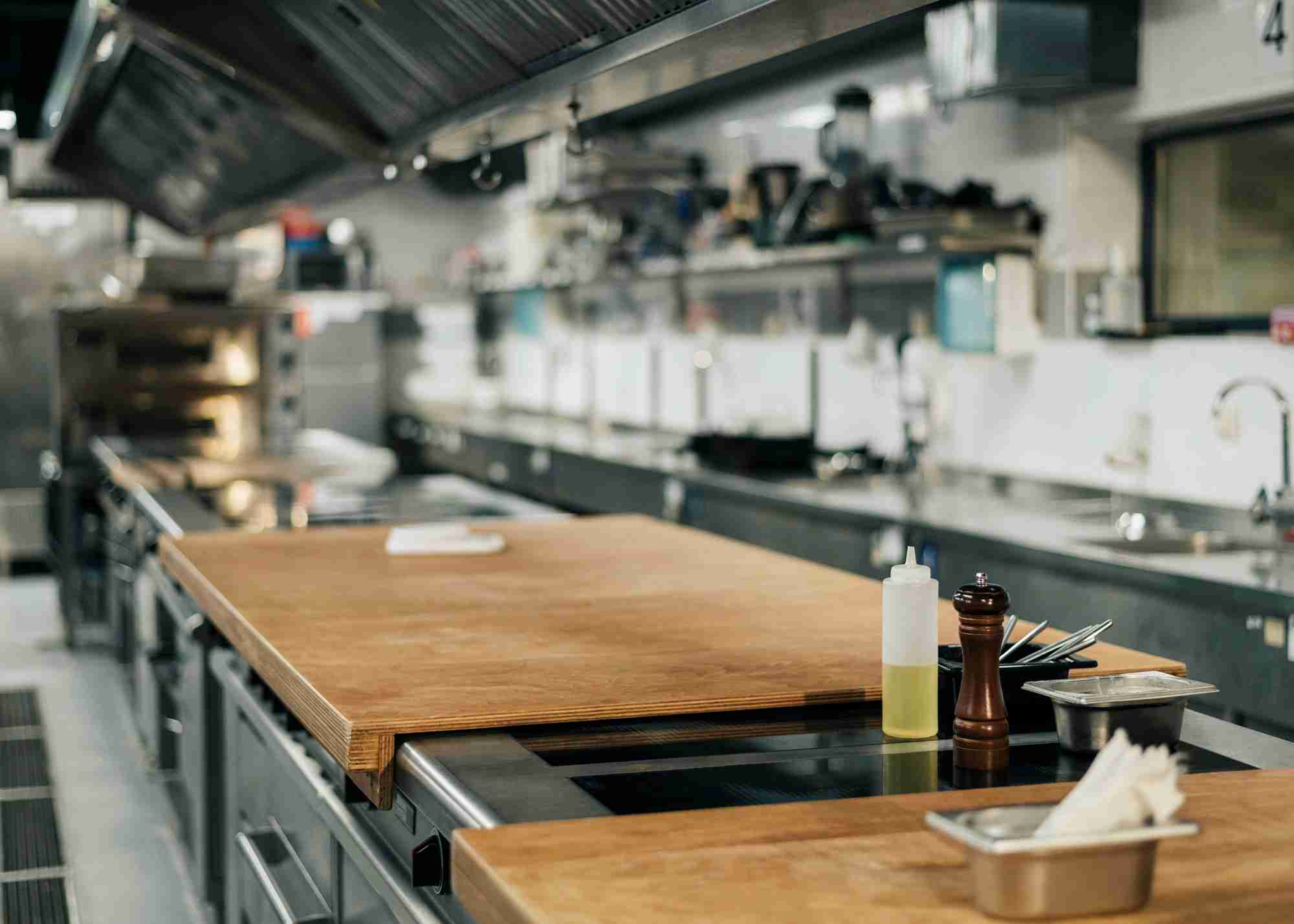 SHARE
SHARE
Understanding 9 Uses of a Central Kitchen for Restaurants and Food Businesses
Febbi S
Managing a restaurant with multiple branches is not easy. From maintaining taste quality, managing ingredients, to reducing operational costs, all require careful strategy.
One solution that is gaining popularity in the food and beverage industry is the use of a central kitchen.
In this article, ESB will discuss what a central kitchen is, how it works, and its benefits for your restaurant business.
What is a Central Kitchen?
A central kitchen is the main kitchen owned by restaurants with multiple branches or locations.
This facility is used to prepare ingredients or even fully cooked meals, which are then packaged and distributed to various restaurant branches.
The main goal of using a central kitchen is to reduce operational costs, such as labor and food expenses.
According to Hospitality Review, the use of a central kitchen can save up to 10% of operational costs because bulk purchasing is cheaper compared to separate purchases for each branch.
How Does a Central Kitchen Work?
A central kitchen acts as the production center for a restaurant or café group with the same brand.
Ingredients are purchased in large quantities, processed, and sent to the restaurant branches for inspection before being served.
In addition to large restaurants, central kitchens are also often rented out to small restaurants, food trucks, or cafés that do not have their own kitchen facilities.
A central kitchen allows them to store large quantities of ingredients, cook meals, or prepare food components for sale.
Many restaurants now utilize central kitchens to produce food items such as bread, sauces, or even full meals in one location before distributing them to all branches.
This facility also provides large storage spaces for frozen food and expensive cooking equipment that would be costly if bought separately for each branch.
Read more: How Important is a Self Service System for Your Culinary Business?
Benefits of Central Kitchen for Restaurants
Sumber: Freepik
Some benefits of a central kitchen for restaurants include:
1. Improving Consistency in Taste and Quality
A central kitchen ensures that the taste and quality of food remain consistent across all branches.
By using the same ingredients, equipment, and team, restaurants can maintain the high-quality standards expected by customers.
Changes in ingredients or recipes can also be applied directly in the central kitchen without needing to alter processes at each branch.
With this consistency, restaurants can build a reputation as a reliable brand for customers.
2. Higher Operational Efficiency
A central kitchen allows restaurants to automate processes, save labor, and increase efficiency.
Some ways central kitchen systems improve efficiency include:
- Inventory Management: Purchasing ingredients in bulk reduces the per-unit cost because wholesale prices are lower. This system also helps control stock and reduce waste.
- Labor Savings: Most of the cooking is done at the central kitchen, so staff at the branches can focus on customer service.
3. Business Expansion Opportunities
A central kitchen opens up opportunities for restaurants to expand into new segments and add revenue streams.
For example, if your restaurant's homemade jam is very popular, you can sell it to other restaurants. This creates an additional revenue stream without the need to add more facilities or staff.
With optimal production capacity and good payment management, a central kitchen can increase your restaurant's profit margins.
4. Reduction in Operational Costs
Bulk purchasing and food processing in one location can reduce the per-unit cost of ingredients. Although the initial investment to build a central kitchen is significant, the long-term savings are considerable.
5. Simplifying Restaurant Branch Operations
With most of the cooking done in the central kitchen, branch kitchens only need minimal space and equipment.
Additionally, standard operating procedures (SOPs) such as food presentation and assembly become simpler, ensuring efficiency at each branch.
6. Reducing Dependency on Third Parties
With a central kitchen, restaurants no longer rely on external vendors. You have full control over inventory management, delivery schedules, and payment systems.
When stock at one outlet runs out, you can process requests and shipments directly without waiting for third-party vendors, making operations more flexible and efficient.
7. Security of Production Methods
One concern about using vendors is the risk of recipe leaks and production methods being exposed.
With a central kitchen, the production process is fully managed internally, minimizing the risk of leaks.
Direct control over the kitchen also ensures security, although internal supervision is still needed to maintain confidentiality.
8. Flexibility in Menu Innovation
A central kitchen makes it easier for restaurants to innovate and create new menus. As a culinary business owner, you can respond to market trends faster and develop menus efficiently without third-party limitations.
This process is also supported by direct access to food cost data, which simplifies analysis and decision-making for new menus.
9. Product Safety Standardization
A central kitchen allows for the implementation of stricter operating standards to maintain product quality and safety.
With adequate facilities and procedures, restaurants can ensure that every product meets food safety standards.
If necessary, professional third parties can be involved to enhance supervision. This can also become an added selling point for customers.
Read more: 5 Important Kitchen Management Tips for Beginner Restaurant Owners
Conclusion
A central kitchen offers many benefits for restaurant businesses, including cost savings, quality consistency, and expansion opportunities.
This facility also simplifies branch operations, allowing restaurants to focus on customer service and business development.
With a significant initial investment, the long-term benefits of a central kitchen make it a valuable asset for restaurants looking to grow and compete in the food and beverage industry.
Schedule a consultation for your culinary business needs with various ESB products here.
 SHARE
SHARE




